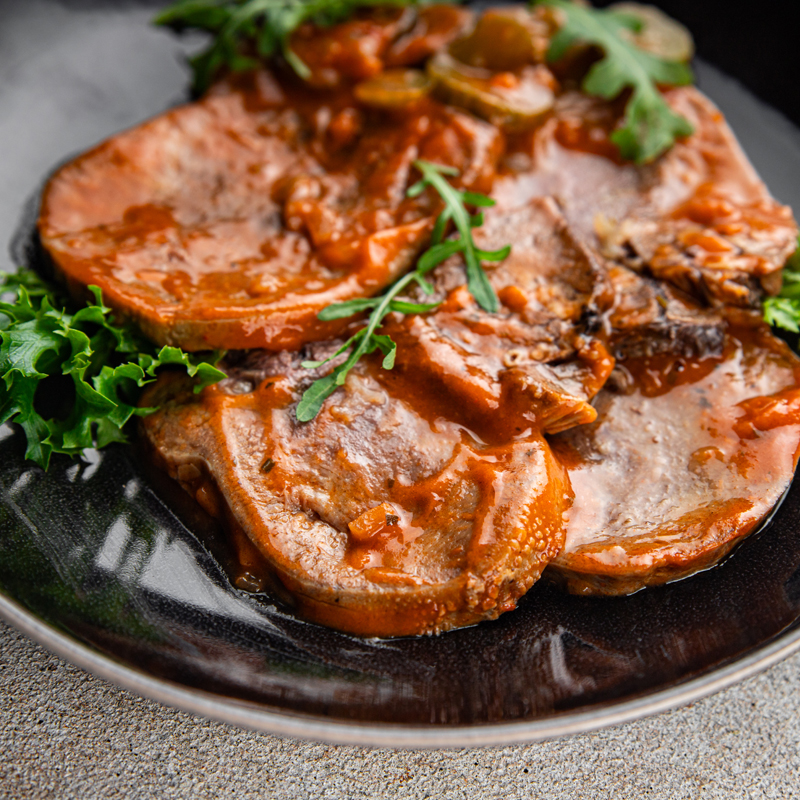
100 gr |
-- |
|
|---|---|---|
| Carbohydrate (gr) | 15.04 |
4928.47 |
| Protein (gr) | 3.59 |
1176.23 |
| Fat (gr) | 12.46 |
4083.43 |
| Fiber (gr) | 1.36 |
445.97 |
| Cholesterol (mg) | 14.64 |
4795.8 |
| Sodium (mg) | 325.27 |
106557.75 |
| Potassium (mg) | 392.16 |
128471.4 |
| Calcium (mg) | 78.15 |
25603.27 |
| Vitamin A (mg) | 46.04 |
15084.01 |
| Vitamin C (mg) | 6.16 |
2019.31 |
| Iron | 0.62 |
203.1 |
Veal heart is a highly nutritious organ meat, packed with essential nutrients such as protein, B vitamins, iron, potassium, phosphorus, and zinc. This lesser-known cut of meat offers numerous health benefits due to its rich nutrient profile, making it a valuable addition to a balanced diet when consumed in moderation. However, due to its cholesterol and saturated fat content, beef heart is not suitable for individuals with high cholesterol or those following a low-fat diet.
Calories in veal heart are 103 calories per 100 grams.
Beef heart is prized for its dense concentration of nutrients:
While beef heart is nutrient-dense, it also contains cholesterol and saturated fats. These factors necessitate mindful consumption, particularly for individuals with high cholesterol or cardiovascular concerns. Incorporating beef heart into the diet occasionally and pairing it with heart-healthy foods can help mitigate potential risks.
Beef heart is versatile and can be prepared in various ways: